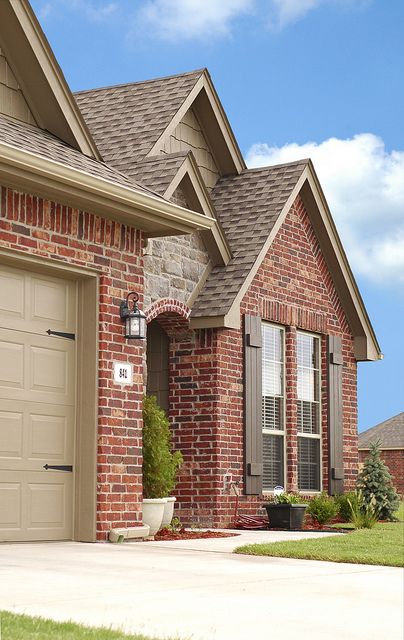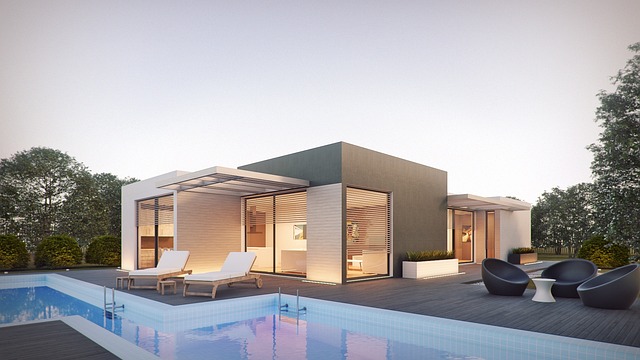
Traditional house plans offer simplicity, functionality, and a pleasant aesthetic. There are many styles, sizes, shapes and types available. They have been a very popular choice for many decades and it is unlikely they will ever go out of fashion.
They are often a mix of classic and modern design elements. These house plans are versatile and can be tailored to suit any lifestyle. Whether you are a new homeowner looking for a starter home, a parent looking to downsize, or someone wanting to build a retirement retreat, a traditional house plan can be the answer.
The best traditional home plans combine modern and historic elements. Although they may include architectural elements from the past but also reflect American life, traditional home plans are a blend of modern and historic. They are functional and attractive while meeting the needs of typical American families. They can be customized to suit any property type, from a simple one-story house to a luxurious estate.

Traditional home designs are ideal for today's busy lives. They are easy-to-maintenance, clean, and have practical features. You can build them in any size you like, from a single-story cottage to a large house with four bedrooms. These simple designs have unique characteristics that make them stand out despite their simplicity.
Traditional home plans are simple and functional. They tend to have a few key characteristics, including a front porch, a covered entry, and an open floor plan. This layout is perfect for families with active children. A good outdoor space is essential as it provides privacy and security. A beautiful porch is an excellent way to bring class and elegance to any home, even a small one.
A traditional house plan is a good choice for homeowners looking to build a stylish, functional home. These houses are often made from brick or stone, and are built with natural materials. It is possible to blend the exterior of your home with neutral and natural colors.
These houses are famous for their large kitchens and open layouts. These houses are ideal for parents who work full-time and want to spend more time with children. An open island kitchen is one way to keep the flow of your home moving.

There are other noteworthy features to the traditional house plan. A walk-in pantry, for example, provides extra storage. The kitchen accent can double by having indoor windows at the center of the wall. Split bedroom traditional homes are a good option for adding privacy to the master bedroom. This house plan is perfect for parents who are looking to spend quality times with their children but do not want to be constantly surrounded.
FAQ
Are you able to live in a renovated house?
Yes, I can live inside a house while I renovate it.
Is it possible to live in a house with renovations going on? The duration of the construction works will affect the answer. If the renovation process lasts less than 2 months, then yes, you can live in your home while it's under construction. If the renovation takes longer than two weeks, however, you can't live in your home during the construction.
You should not live in your house while there is a major building project underway. This is because you could be injured or even killed by falling objects on the construction site. Noise pollution and dust from heavy machinery on the job site could also be a problem.
This is especially true if your house has multiple stories. This is because the vibrations and sound created by construction workers could cause serious damage to your property.
You'll also need to cope with the inconvenience of living in temporary housing while your house is being renovated. This means you won’t have the same amenities as your own home.
You won't be allowed to use your dryer or washing machine while they are being repaired. It will be difficult to bear the smell of paint fumes as well the sounds that workers make.
All of these factors can create stress and anxiety for you and your loved ones. It is therefore important to plan ahead so that you don't end up feeling overwhelmed by the situation.
Research is key when you are considering renovating your home. It will save you money and help you avoid costly mistakes.
It is also advisable to seek professional assistance from a reputable contractor so that you can ensure that everything goes smoothly.
Can I do the whole renovation myself?
If you are able to do it yourself, why not pay someone else?
It doesn't matter how much you love DIY, there are times when you simply cannot do it yourself. There may be too many variables involved for you to control.
An example: If your house is older than you think, it might be that the wiring is unsafe. You will need an electrician to inspect and make sure that your system is reliable and safe.
Consider that you may not be able repair any structural damage that might have occurred during the renovation.
In addition, you might not have the tools necessary to complete the job properly. For example, if your goal is to install a new sink in your kitchen, you will need to purchase a plumber’s snake, which is designed to clear blocked pipes.
You will also need a licensed plumber to work on your plumbing project.
You must be confident in your abilities before you attempt such a difficult task.
If you aren't sure if you have the skills or knowledge to tackle the task, get help from your family and friends.
They can offer advice about what to do and where to go for more information.
Is it worth the extra cost to build or remodel a house?
There are two options available to you if you're considering building a home. Pre-built homes are another option. This type of home can be moved in to immediately after it is built. Another option is to build a custom home yourself. To build your dream home, you will need to hire an architect.
How much time and money it takes to design and plan a new house will affect the cost. Because you will likely be doing most of the work yourself, a custom home can require more effort. But you can choose the materials you want and where you want them to be placed. It might be easier for you to find a contractor who has experience building custom homes.
A new home will usually be more expensive than a renovated home. That's because you'll pay more for the land and any improvements you make to the property. You will also need to pay inspections and permits. The average price difference between a new home and one that has been renovated is between $10,000 and $20,000.
Statistics
- Rather, allot 10% to 15% for a contingency fund to pay for unexpected construction issues. (kiplinger.com)
- Design-builders may ask for a down payment of up to 25% or 33% of the job cost, says the NARI. (kiplinger.com)
- They'll usually lend up to 90% of your home's "as-completed" value, but no more than $424,100 in most locales or $636,150 in high-cost areas. (kiplinger.com)
- A final payment of, say, 5% to 10% will be due when the space is livable and usable (your contract probably will say "substantial completion"). (kiplinger.com)
- The average fixed rate for a home-equity loan was recently 5.27%, and the average variable rate for a HELOC was 5.49%, according to Bankrate.com. (kiplinger.com)
External Links
How To
What amount should I spend to restore my old house?
The cost of renovating your home depends on how many rooms you want to update, what kind of renovations you plan to do, where you live, and whether you're doing it yourself or hiring professionals. The average cost of renovation ranges from $10,000 to $50,000, depending on the size and scope of the project.
If you intend to sell your home soon after the renovation, the price you receive will be less than what the market value. It is possible to lose money if your home looks shabby before you sell. If you put enough effort into making your home look great, it will increase the price you receive when you sell it.
Consider these factors to help you decide which project to tackle first.
-
Your budget. Start small if budget is tight. One room can be tackled at a time such as painting walls or changing flooring. For major renovations, you can either hire a contractor who specializes on kitchen remodeling or save money.
-
Priorities. You decide what you are going to do with your home. You should not limit your efforts to one problem. Even minor problems can quickly add up. It is possible to end up replacing your roof sooner than anticipated if your roof leaks whenever it rains.
-
Your timeline. If you're thinking about buying another property soon, you might want to prioritize those projects that won't affect the resale value of your current home. You wouldn't, for instance, want to put hardwood floors in your new house or change the bathroom fixtures if you plan to move next year. To make these upgrades, it might be a good idea to wait until you leave your home.
-
Your skills. Find someone to help you if you don't have the necessary skills. For example, if your carpentry skills aren't strong enough to build custom cabinets, you might be able to hire a cabinet maker to do the job.